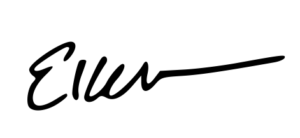After Paris: Lessons Learned
By Ellen Friedman
© Kristian Buus / Not an Alternative
February 5, 2016
“Another world is not only possible, she is on her way. On a quiet day, I can hear her breathing.” —Arundhati Roy
It was definitely not quiet on the streets of Paris during the COP21 meetings during December 2015, but it was possible to see, feel, and experience that other world reaching for the light. The Compton Foundation team traveled to Paris to witness, support, and participate in an important movement moment in the response to climate change. We wanted to have unmediated experiences with our grant partners and others who were creatively and urgently working to raise awareness about climate change, create real alternatives to the current fossil fuel based economy, and influence the outcome of the official UN activities. We wanted to see how our grantmaking was working in practice and to better understand how we might focus our funding to enable the most effective work on the ground.
We came away with a number of insights about the opportunities and the challenges of the current moment. We both affirmed our overall grantmaking approach and reflected on where we need to adapt our work.
What did we learn?
We learned the value of being present as work happens. This is essential if we are to truly understand the work of our partners in context. It is one thing to read proposals or have meetings in our offices, quite another to be in the streets together, to observe adaptive planning, actions, and real time organizing under stress and the constraints of changing conditions.
Everyone must be at the table. We must understand the connections between issues and constituencies, between local, regional, national, and international work. Finding ways to widen our circles and engage outside of our comfort zone is essential if transformative change is truly going to unfold. How we hold the multiplicity of perspectives in our work is a huge challenge, but one to which we must attend.
Relationships matter and kindness pays off. Over and over during our time in Paris, we noticed the way that people who had invested in relationship building were able to adapt to rapidly changing realities with relative ease—the lines of communication and trust were long established and shared purpose was clear. Relationship building can no longer be dismissed as “soft stuff.” Simple actions like saying thank you or sharing a meal nourished not only the body but also the soul of people working endless hours with little sleep. Asking questions and listening authentically to radically different perspectives on the work deepened connection even across great divides of belief and experience.
Hope works best (if grounded in the reality of the challenges we face). All of the issues we are working on include injustice, inequity, and deeply ingrained common sense cultural narratives that work against the kind of change we want to see. However, when we witnessed street actions, conversations, and art that were creative, joyful, and hopeful, we could feel a marked difference in the responses of the people engaged. We are in a long term, marathon effort to transition to a climate resilient future—everything needs attention, from the way we eat and travel to the way we work and consume. Highlighting hope provides us a sense of where we are going, as well as what we are working to dismantle.
A culture strategy is essential. Ultimately, changing cultural norms is what must happen for a fossil fuel free, just, climate resilient future to emerge. We saw in Paris the power of art to convey both the gravity of the problem and its possible solutions. From creative installations such as the EXIT installation at the Palais de Tokyo to the seriously fun and dramatic action to get oil company money out of the Louvre from #fossilfreeculture, we saw how art and activism bring people to the table, educate, and engage, and can be the key to generating the radical empathy that can drive a powerful organizing strategy.
While much has been written about the Paris agreement (like this great piece from Michael Northrop), what we will take into the post-Paris challenge is the value of art, culture, relationships, and engaged philanthropy. What will keep us going as we all navigate the road out of Paris and into a new, climate resilient future, is the glimpse of that new world and the inspiration to participate in the act of bringing it into being.
Onward,

Ellen